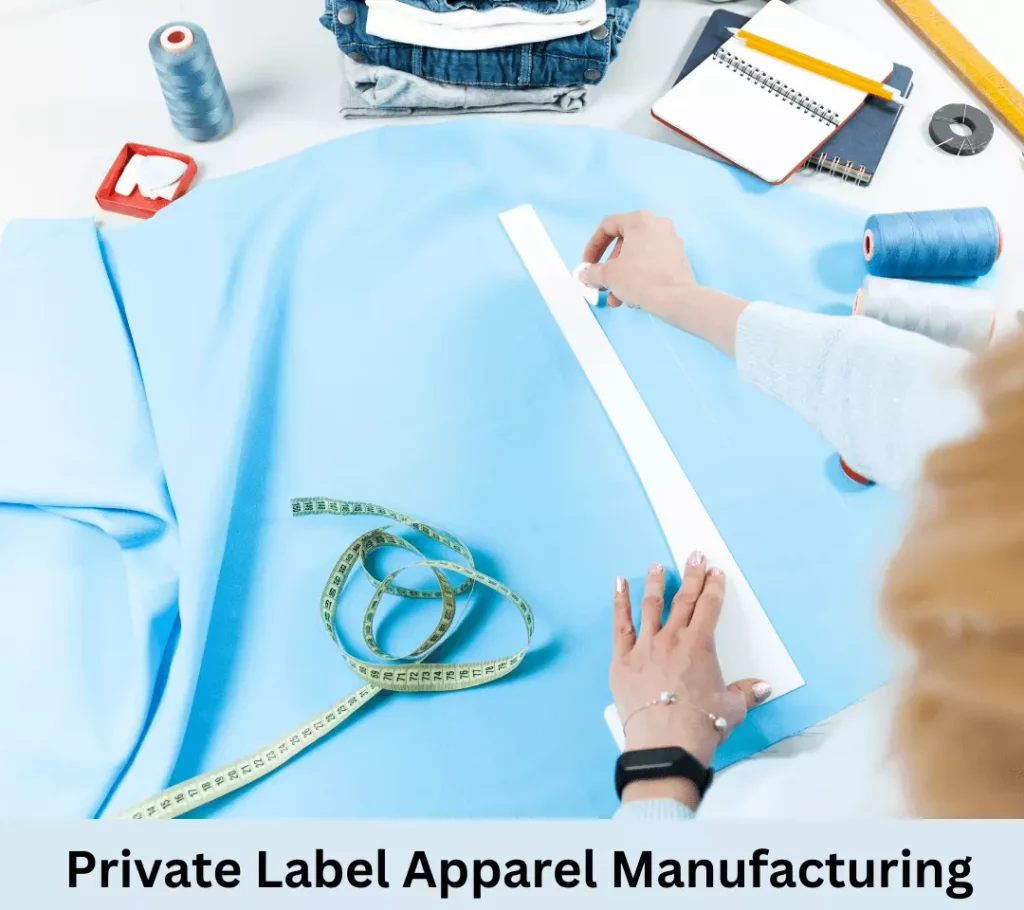Private label apparel manufacturing is a concept that has gained significant momentum in the fashion industry. It allows retailers to create and sell their own clothing lines under their brand name, rather than sourcing products from external suppliers. This article delves into the world of private label apparel manufacturing, highlighting its benefits, cost-saving potential, key considerations when choosing a manufacturer, steps for successful implementation, and the associated challenges and risks.
Benefits of Private Label Apparel Manufacturing
Private label apparel manufacturing offers several advantages to retailers looking to differentiate themselves in the market and maximize their profits. For private labeling clothing demands, here are some benefits listed below for you to learn more.
Increased profit margins through cost savings
By eliminating the need for third-party brand markups and bypassing intermediaries, private label apparel manufacturers enable retailers to enjoy higher profit margins. They can leverage economies of scale and negotiate better pricing for raw materials and production, resulting in cost savings that directly impact the bottom line.
Control over branding and pricing
With private label manufacturing, retailers have complete control over their brand identity and can customize their products to align with their target audience’s preferences. They can establish their pricing strategy based on market demand, competition, and profit objectives, enhancing their overall brand positioning.
Flexibility in product customization and differentiation
Private label manufacturing facilitates product customization and differentiation, allowing retailers to create unique garments that cater to specific customer needs. From design variations to material choices and sizing options, the flexibility offered by private-label manufacturing enables retailers to stand out in a crowded marketplace.
How Private Label Apparel Manufacturing Can Reduce Costs
Private label apparel manufacturing from Appareify can significantly reduce costs for retailers, enhancing their profitability and financial sustainability. There are also other top private-label clothing manufacturers listed on the website of Metro Times, check them for any manufacturing needs.

The below content are some points to explain how this private label manufacturing reduce costs:
Elimination of third-party brand markups
By manufacturing their own apparel, retailers eliminate the need to pay markups to third-party brands. This eliminates a significant cost component, allowing retailers to allocate their resources more efficiently and maximize their profit margins.
Reduced manufacturing and overhead costs
Private label apparel manufacturing helps retailers streamline their operations and reduce manufacturing costs. They can optimize production processes, adopt efficient supply chain management practices, and eliminate unnecessary overhead expenses. This results in improved cost efficiency and higher profitability.
Economies of scale and bulk production advantages
Private label manufacturers often have the capacity to produce garments in bulk, taking advantage of economies of scale. This enables retailers to benefit from lower production costs per unit and reduces the overall cost of their inventory. Bulk production also allows for better planning and control over the supply chain, ensuring a steady flow of products to meet customer demand.
Key Factors to Consider When Choosing a Private Label Apparel Manufacturer
Selecting the right private label apparel manufacturer like Appareify is crucial for the success of a retailer’s business. Several key factors should be taken into consideration during the decision-making process.
Reputation and track record of the manufacturer
Retailers should thoroughly research and assess the reputation and track record of potential manufacturers. A well-established manufacturer with a solid portfolio and a positive industry reputation is more likely to deliver high-quality products and provide reliable services.
Production capacity and capabilities
It is essential to evaluate the production capacity and capabilities of the manufacturer. Can they meet the retailer’s volume requirements? Do they have the technical expertise and equipment necessary to produce the desired garments? Assessing these factors ensures a timely and efficient manufacturing process.
Quality control processes and certifications
Retailers should prioritize manufacturers that have robust quality control processes in place. This ensures that the manufactured products meet the expected standards of quality and reliability. Certifications such as ISO, Oeko-Tex, or other industry-specific accreditations can serve as indicators of a manufacturer’s commitment to quality.
Steps to Successfully Implement Private Label Apparel Manufacturing
Implementing private label apparel manufacturing with Appareify requires careful planning and execution. Retailers should follow a systematic approach to ensure a successful launch of their own clothing line.
Market research and identifying the target audience
Market research is crucial to understand customer preferences, trends, and the competitive landscape. By identifying the target audience, retailers can tailor their product offerings to meet specific market demands and gain a competitive advantage.
Designing and developing a unique product line
Developing a unique product line is a key aspect of successful private label apparel manufacturing. Retailers should invest in design and development efforts to create garments that differentiate them from competitors and resonate with their target audience. This involves selecting appropriate fabrics, creating appealing designs, and considering factors such as fit, comfort, and durability.
Establishing a partnership with a reliable manufacturer
Finding a reliable private label apparel manufacturer is crucial. Retailers should establish partnerships with manufacturers that align with their goals and values. Communication, transparency, and trust are essential in building a successful long-term relationship. Retailers should clearly communicate their expectations and ensure that the manufacturer is capable of meeting them.
Challenges and Risks Associated with Private Label Apparel Manufacturing
While private label apparel manufacturing from Appareify offers several benefits, there are also challenges and risks that retailers should be aware of and actively manage.
Potential quality control issues and product consistency
Maintaining consistent product quality can be challenging, particularly when working with multiple manufacturers or outsourcing production to different regions. Retailers should implement strict quality control processes to minimize variations in product quality and ensure that customer expectations are consistently met.
Balancing supply and demand fluctuations
Balancing supply and demand is crucial for retailers engaged in private label apparel manufacturing. Overestimating or underestimating demand can result in excess inventory or missed sales opportunities. Retailers should closely monitor market trends, use demand forecasting techniques, and maintain effective inventory management practices to avoid supply chain disruptions.
Intellectual property protection and counterfeit risks
When retailers develop their own apparel brands, intellectual property protection becomes paramount. From logo designs to unique features, retailers must safeguard their intellectual property rights to prevent counterfeit products and unauthorized use of their brand assets. Implementing trademarking and copyright registration processes can provide legal protection against infringement.
Conclusion
Private label apparel manufacturing presents numerous benefits for retailers aiming to maximize their profit margins and establish their brand presence in the marketplace. By carefully considering the factors discussed in this article, retailers can leverage private label manufacturing to reduce costs, differentiate their products, and cater to their target audience’s needs.
Despite the challenges and risks involved, with proper planning and execution, private label apparel manufacturing can be a game-changer for retailers seeking to thrive in the competitive fashion industry.


